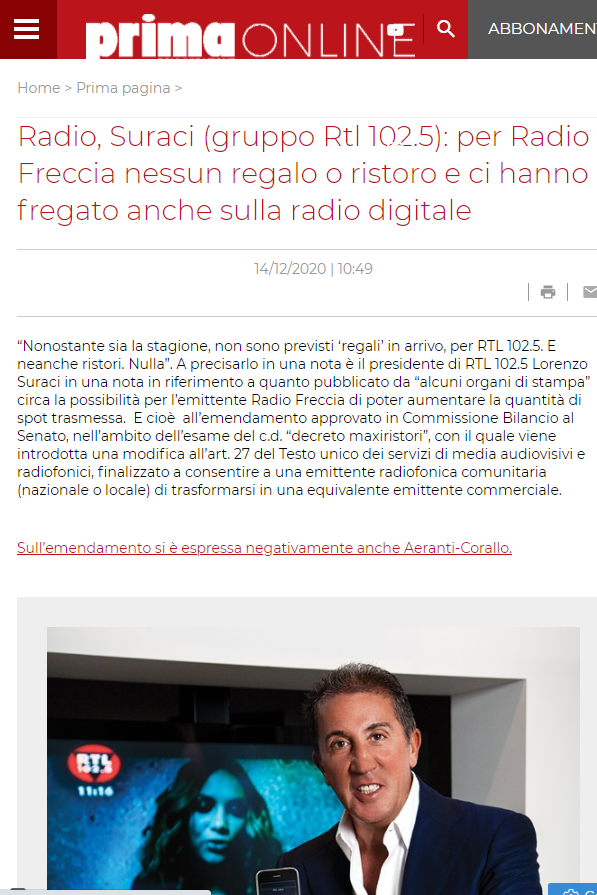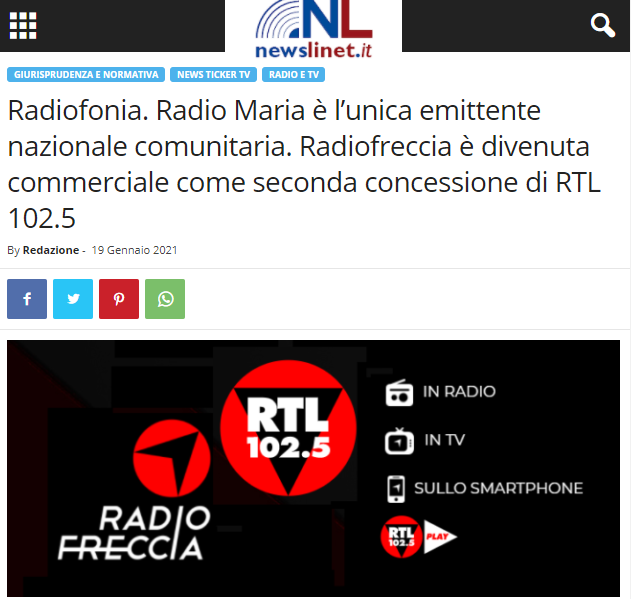
Source
Although in December 2020 he told Prima Comunicazione “it is not a gift”, Lorenzo Suraci, publisher of nationwide RTL 102.5 and Radio Zeta (a so-called “superstation”), then took advantage of the opportunity offered by Law 176/2020, which allows a national network to transform a community licence into a commercial one. It thus had Radiofreccia purchased by RTL 102.5, making it its second licence and transforming it from a national community radio station into a commercial one. This removes the advertising limit of 10% per hour, which can be raised to 20%.
Reconstructing the history of the broadcaster7

Source
In July 2016, Mediaset took control (72.12%) of the Finelco Group (owner of Radio 105 and Virgin Radio) and formed a partnership with RMC-Radio Monte Carlo (later acquired in 2018), exceeding 10 million listeners on the average day (including R101, already owned by the group). Suraci, who can count on the 7 million listeners of RTL 102.5 (first in Italy for ratings) and Radio Zeta, found himself bypassed. In order to counter the firepower of Mediaset, which can sell advertising on its radio stations on a “package” basis, he tried to grow his group by buying Radio Padania (a Lega Nord station with a national community licence) for 2.1 million euros, transforming it into Radiofreccia, a station with a rock format. The community licence allows the broadcaster to turn on hundreds of repeaters without buying them from other radio stations (the law was tailored to favour the Lega Nord and allow it to extend Radio Padania’s coverage throughout the Peninsula), but limits advertising to 10% per hour. Now the “cap” has been blown off, and the only national community radio station remains Radio Maria, which has never used this loophole to turn on new equipment.
